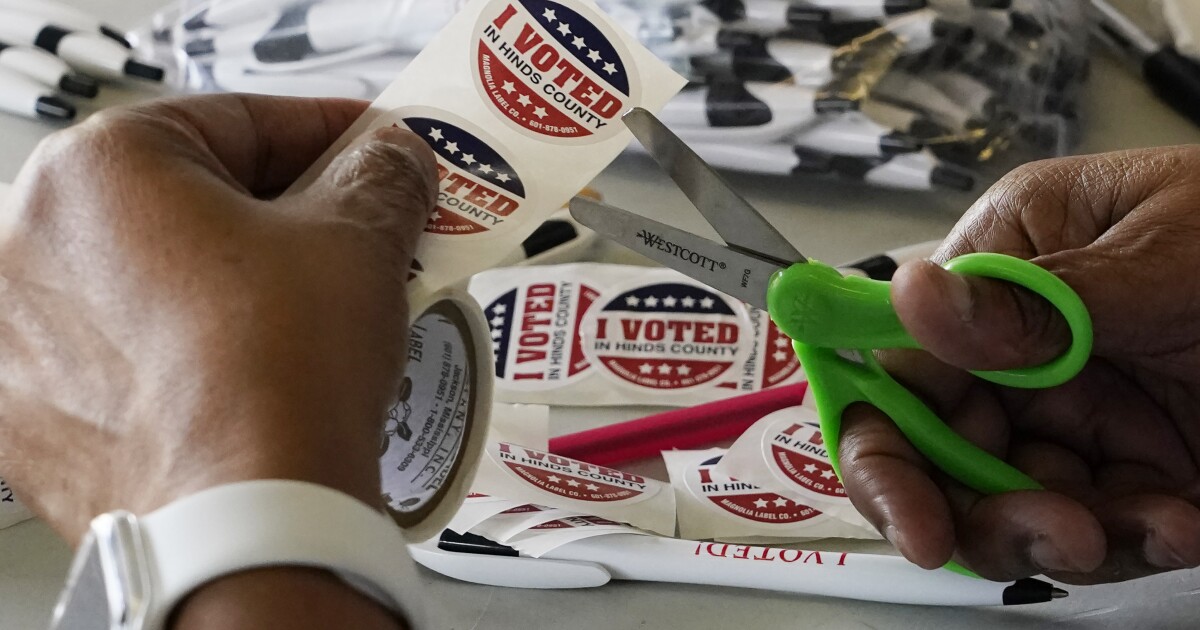

An appeals court in Mississippi voted to uphold a Jim Crow-era voting restriction law Wednesday that strips convicted felons of their right to vote.
The law, which was created with racist intent in 1890, is no longer being used for racist purposes, the 5th U.S. Circuit Court of Appeals determined. Section 241 in Mississippi’s constitution specifies that those who are convicted of murder, rape, bribery, theft, arson, obtaining money or goods under false pretense, perjury, forgery, embezzlement, or bigamy no longer have the right to vote.
“It is uncontroverted that the state constitutional convention was steeped in racism and that ‘the state was motivated by a desire to discriminate against blacks’ when the 1890 constitution was adopted,” the court’s 10-7 majority wrote in the opinion.
GRAND JURY DECLINES TO INDICT WOMAN OVER 1955 LYNCHING OF EMMETT TILL
Roy Harness and Kamal Karriem are black men who were convicted of forgery and embezzlement and lost their right to vote as a result. The duo filed a suit in August 2019 and challenged their disenfranchisement under the equal protection clause, according to CNN.
Amendments to the state constitution were made in 1950 and 1968, with “burglary” being removed in 1950 from the list of crimes that prohibited people from voting and “murder” and “rape” being added to the list in 1968.
The new language added in 1968 removed all “discriminatory taint,” the majority opinion said. With the inclusion of the amendments, it was not proven that the revised law was motivated by racism, the opinion added.
Three dissenting opinions were filed. Judge James Graves argued that the racist atmosphere of the 1960s compared to the 1890s was not as different as the others were making it seem, noting the Mississippi race riots in the 1960s.
“Even if we engage with this faulty ‘reenactment’ theory, a cursory look at Mississippi’s well-known history establishes a factual dispute on whether the legislature and electorate acted with discriminatory intent in 1968,” Graves said. “Even a cursory review of Mississippi history leading up to 1968 demonstrates that life for Black Mississippians in this era was little better than it had been for their grandparents in 1890.”
CLICK HERE TO READ MORE FROM THE WASHINGTON EXAMINER
Judges Carl Stewart, James Dennis, Stephen Higginson, and Gregg Costa agreed with Graves’s dissent.
The Impact Litigation Project at the Mississippi Center for Justice, which represents Harness and Karriem, said it plans to appeal the ruling to the state Supreme Court.






